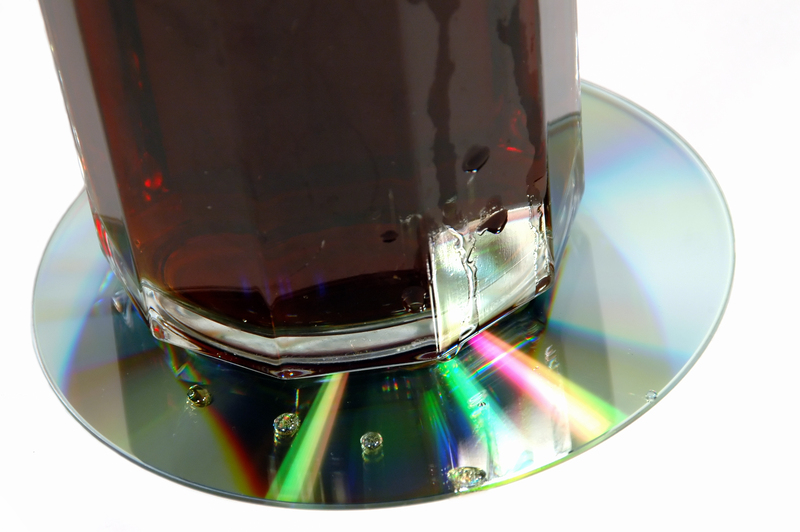Low-Cost Methods for Bulky Waste Item Disposal
Dealing with bulky waste items--such as old furniture, appliances, mattresses, and garden debris--can be a significant challenge for homeowners, renters, and businesses alike. These large items require special methods for disposal due to their size, weight, and, in some cases, their potential environmental impact. Fortunately, there are affordable options for bulky waste item removal that are both eco-friendly and budget-conscious.
In this comprehensive guide, we'll explore various low-cost methods for disposing of bulky waste items, so you can declutter responsibly and save money in the process.

Understanding Bulky Waste and Common Disposal Challenges
Bulky waste (also referred to as bulk rubbish or large item waste) typically includes items that are too big to fit into regular trash bins. Examples include:
- Old sofas, couches, and chairs
- Broken washing machines, dryers, refrigerators, and ovens
- Mattresses and bed frames
- Large garden waste--tree branches, logs, yard debris
- Tables, bookcases, wardrobes, and shelving units
Disposing of bulky waste items comes with its own set of challenges:
- Limited curbside pickup options for large items
- High costs for private junk removal services
- Legal restrictions on dumping items in public spaces
- Environmental concerns about landfill overflow
Thankfully, there are cost-effective and sometimes even free methods available for bulky item disposal, many of which support reuse and recycling initiatives.
Low-Cost and Budget-Friendly Bulky Waste Disposal Methods
Contact Your Local Council or Municipality
Many local authorities provide low-cost bulky waste collection services for residents. Some areas offer free annual pickups, while others charge a nominal fee (typically far less than private companies). Here's how you can benefit:
- Check your council website or call their waste management department to learn about bulky item collection schedules.
- Book a pickup appointment for eligible items and ensure they're placed curbside on the specified day.
- Confirm any restrictions on types and number of items, as well as acceptable preparation (e.g., appliances must be empty and disconnected).
Benefits:
- Affordable (sometimes free!)
- Reliable and trustworthy
- Environmentally responsible--some councils recycle or donate usable items
Community Waste Disposal Events and Drop-Off Days
Many towns and cities host annual or seasonal bulky waste days, where residents can take large items to a central collection point for little or no cost. Take advantage of these local events for a budget-friendly solution.
- Look out for city-sponsored spring or fall clean-up days.
- Prepare items in advance--some events require pre-registration or identification.
- Ask about accepted items, as some events will collect only certain kinds of bulky waste.
Reuse and Donation Options
One of the greenest and least expensive ways to dispose of bulky items is to reuse or donate them. If your furniture, appliances, or other goods are still usable, consider these methods:
- Contact local charities such as Goodwill, Habitat for Humanity, The Salvation Army, or smaller community reuse programs.
- Many organizations offer free pickup of bulky items. This saves you disposal fees and supports a good cause!
- List items on online platforms like Freecycle, Facebook Marketplace, Craigslist, or neighborhood groups.
- Hold a garage sale or swap meet for large items.
Tip: Be honest about an item's condition. If possible, clean or make small repairs to maximize its value for a new owner.
Recycling Bulky Items: An Eco-Friendly and Money-Saving Option
Many bulky waste items contain materials that can be recycled. This not only supports the environment but often reduces or eliminates disposal costs.
- Scrap Metal Recycling: Old appliances, bed frames, and some furniture include metal parts that can be sold or dropped off at scrap yards, oftentimes for free--or even for a small profit!
- Mattress Recycling: Specialized facilities deconstruct mattresses into recyclable components, such as steel, foam, and fabric. Search for local mattress recycling programs.
- E-Waste Collection: Many municipalities or electronics stores accept old televisions, refrigerators, and computers for proper recycling. Some offer these services at no charge.
Before recycling, make sure items are clean, dry, and disassembled as required by your local facility.
DIY Disposal: Transporting Items to a Local Dump or Waste Transfer Station
If curbside pickup or donation isn't feasible, you may be able to self-haul bulky waste items to a municipal landfill, transfer station, or recycling depot.
- Contact your local waste center for opening hours, accepted items, and fee schedules.
- Load items in your own vehicle or rent a van/truck for larger loads--this is usually cheaper than hiring a removal company.
- If possible, separate recyclables (metals, cardboard, etc.) from true waste, as many centers offer discounted or free drop-off for these materials.
Pro tip: Team up with neighbors to combine loads and share costs for vehicle rental or fuel.
Bulky Waste Disposal Through Retail Take-Back Services
Many retailers offer take-back services when you purchase a new bulky item (such as a refrigerator or mattress). For a modest fee (or sometimes for free), they'll remove your old item upon delivery of the new one.
- Always ask about old item removal when ordering large goods.
- Compare fees and look out for special promotions (e.g., "free old appliance removal with purchase").
Neighbor-to-Neighbor Solutions and Bulk Trash Partnerships
Collaborate with your neighbors to maximize savings and convenience:
- Organize a neighborhood "bulky item disposal day" and hire a skip bin or dumpster as a group. Costs can be split among participants.
- Share contacts for inexpensive local hauling services.
- Swap or give away usable items to others in your community before opting for disposal.
Low-Cost Private Junk Removal Services
Hiring a junk removal service doesn't have to break the bank. Here's how to keep costs down:
- Compare quotes from multiple companies, and ask about promotions or discounts for single bulky item removal.
- Select "curbside pickup" (where you bring the items outside) instead of in-home pickup, which is less expensive.
- Choose companies that charge by the item, not by truckload, if you have a small volume.
Creative Repurposing and Upcycling of Bulky Items
If you're feeling crafty, consider upcycling or repurposing your bulky waste items. This is an eco-friendly and extremely low-cost method for keeping large objects out of the landfill. Examples include:
- Turning an old dresser into a bathroom vanity or garden planter.
- Refurbishing wooden furniture for a new look.
- Breaking down furniture into salvageable lumber or hardware for future DIY projects.
Cost Comparison Table: Bulky Waste Disposal Options
| Disposal Method | Typical Cost Range | Environmental Impact | Notable Features |
|---|---|---|---|
| Local Council Collection | Free to low fee ($0-$50 per load) | Low (often includes recycling) | Scheduled, easy process |
| Donation/Reuse | Free (may require own transport) | Very low (promotes reuse) | Supports community, tax deductions possible |
| Community Clean-Up Events | Free-low fee | Low | Periodically available |
| Scrap/Recycle Centers | Free-potentially paid for metals | Very low | Requires self-delivery |
| Self-Haul to Dump/Transfer Station | $10-$60 per load | Varies | Immediate disposal |
| Private Junk Removal | $50-$200 per item/trip | Varies (some recycle) | Most expensive, convenient |

Frequently Asked Questions About Bulky Waste Disposal
What qualifies as a bulky waste item?
Bulky waste items are typically large objects that don't fit in your regular trash bin or bag. This includes furniture, large appliances, mattresses, oversized electronics, and occasionally large quantities of yard waste.
How do I prepare bulky items for disposal?
Instructions vary by disposal method, but common steps include:
- Remove doors from appliances for safety.
- Disconnect and drain water or chemicals from items (e.g., fridges).
- Break items down into manageable parts if possible.
- Ensure items are clean and pest-free if donating or recycling.
Can I leave bulky items on the curb at any time?
No--most municipalities require scheduled pickups or participation in special events. Dumping large items on the curb may result in fines.
Are there free options for bulky waste item disposal?
Yes! Free disposal methods can include donation, community bulk waste events, and recycling centers, depending on your area and the item's condition.
Conclusion: Responsible & Low-Cost Bulky Waste Removal
Getting rid of bulky waste doesn't have to be expensive or environmentally harmful. With some planning, you can take advantage of low-cost methods for bulky waste item disposal that fit your budget and values. Whether you choose to donate, recycle, utilize community programs, or coordinate with neighbors, these solutions make decluttering easy and accessible for everyone.
Remember: Always check local regulations, take care to prepare items correctly, and seek eco-friendly disposal solutions whenever possible. Let's work together for a cleaner, greener community--without breaking the bank!